News
STATUS :
The editorial process for the Conference Proceedings is complete.
The proceedings are currently with CRC press for printing - expected in February 2023
For referencing please note:
Title: eWork and eBusiness in Architecture, Engineering and Construction: ECPPM 2022 Editors: Eilif Hjelseth, Sujesh F. Sujan & Raimar Scherer Copyright year: 2023 ISBNs: HB: 978-1-032-40673-2; PB: 978-1-032-40674-9; EB: 978-1-003-35422-2 Publisher: CRC Press
UPDATES:
To view presentation slides from ECPPM 2022 please use the following link - PRESENTATION SLIDES.
To view keynote presentation slides from ECPPM 2022 please use the following link - KEYNOTE SLIDES.
Download the abstract booklet.
The next ECPPM will be held in Dresden, Germany in September 2024.
Updated 15/12/2022
About Conference
ECPPM 2022 is the 14th European Conference on Product & Process Modelling, the flagship conference event of the European Association of Product and Process Modelling (EAPPM), with a long-standing history of excellence in product and process modelling in the construction industry, which is currently known as Building Information Modelling (BIM). For over 20 years, the biannual ECPPM (European Conference on Product and Process Modelling) conference series, as the oldest BIM conference, has provided a unique platform for the presentation and discussion of the most recent advances with regard to the ICT (Information and Communication Technology) applications in the AEC/FM (Architecture, Engineering, Construction and Facilities Management) industry.
We aim to host ECPPM 2022 as a physical conference. The last conference in 2021 in Moscow was online, and the previous conference was physically held in Copenhagen in 2018. After careful consideration, we decided to prioritise dialogue and networking, therefore, will not include live online presentations of papers (it is challenging to have a hybrid conference with good discussions). Furthermore, there will be several workshops and networking sessions in parallel to the traditional scientific presentations. The workshops and events are being developed, the organisers are open to suggestions, kindly email post@ecppm2022.org if interested. We intend to record all presentations and present this online after the conference on a web-based platform which will be released after the conference. We invite researchers, scientists, and industry practitioners to submit papers, and present or participate in addressing people, process, and technology in digitalisation innovation within the AEC/FM industry and education to Scandic Lerkendal, the largest conference venue in Trondheim from 14th to 16th Sept. 2022. This enables us to include a lot of activities, such as an “Industry day” to attract professionals from all levels and branches in the AEC/FM industry. The “Industry day” on Wednesday is planned with three parallel thematic tracks; - Virtual Design and Construction (VDC), Sustainability and Digitalization, Industry Transformation, where each session consists of; Thematic presentations, Workshops with group work, and presentations from Norwegian projects. Industry day activities are open for all who registered for the scientific conference, but it is also possible to register for the industry day only. We hope to see you in Trondheim for ECPPM 2022, Kindly register as soon as possible.
Registration
Registration costs are shown below. The Registration system is OPEN.
The registration system includes the option to book accommodation at a discounted rate, there are limited spaces at this rate.
| ECPPM 2022 Registration Options | Early Bird, July 15 2022 |
From, July 16 2022 |
|---|---|---|
| Author Access to all sessions, conference material, coffee breaks, lunches, publication costs & conference proceedings | NOK 5,900 (€590) | NOK 6,900 (€690) |
| Participant Access to all sessions, conference material, coffee breaks, lunches & conference proceedings | NOK 5,000 (€500) | NOK 5,500 (€550) |
| Student Access to all sessions, conference material, coffee breaks, lunches, publication costs & conference proceedings | NOK 4,200 (€420) | NOK 4,900 (€490) |
| NTNU Host Student & Researchers Access to all sessions, coffee breaks & lunches | NOK 2,500 (€250) | NOK 2,500 (€250) |
| Industry Day OnlyAccess to sessions on 15th September only, coffee breaks, lunch & conference material | NOK 3,500 (€350) | NOK 3,500(€350) |
| Networking, Meals & Other | |
|---|---|
| Icebreaker & Tapas 13th Sept (19.00) | NOK 100* (€10) |
| Conference Dinner 15th Sept | NOK 1,000 (€100) |
| Extra Copy of the Proceedings | NOK 1,000 (€100) |
| Additional Publication | NOK 500 (€50) |
*Fee included to reduce food waste
DISCOUNT CODES (1000NOK) for the following organisations: (INDUSTRY DAY PARTICIPANTS ONLY)
Prosjekt Norge - pnorge buildingSMART - bsmart Næringslivsringen - ringen Green 2050 - green2050 Constrution City Cluster – ccc VDC-certification - vdc BIMverdi - verdi
Industry Day
Klikk her for å se denne delen på norsk.
NTNU has expanded the scientific digitization conference ECPPM 2022 with an Industry Day - specially adapted to the Norwegian BAE industry.
The day consists of thematic speakers (experts) in: – Virtual design and construction (VDC) – Industrial transformation – Sustainability and digitization
For those who wish, they can participate in an active workshop (discussions in Norwegian), or follow the presentations.
The best practice presentations emphasize how VDC contributes to a new digital process - and vice versa.
The day ends with how to integrate digitization and sustainability.
During the breaks there is a demo where you can test HoloLens
Those who wish can also participate in the scientific sessions - see separate programme.
Register now by using the registration form. Ordinary price is NOK. 3,500. But we give a discount of NOK. 1,000 for the following organizations - booking code: Project Norway - pnorge buildingSMART - bsmart Business ring - the ring Green 2050 - green2050 VDC certification - vdc Construction City Cluster - ccc BIMverdi - verdi
There is also a conference dinner on Thursday evening at 19:00, which you can select in the registration form.
You book a hotel room at Scandic Lerkendal for NOK. NOK 1,200/night when you register. The hotel offer is valid until 3 September.
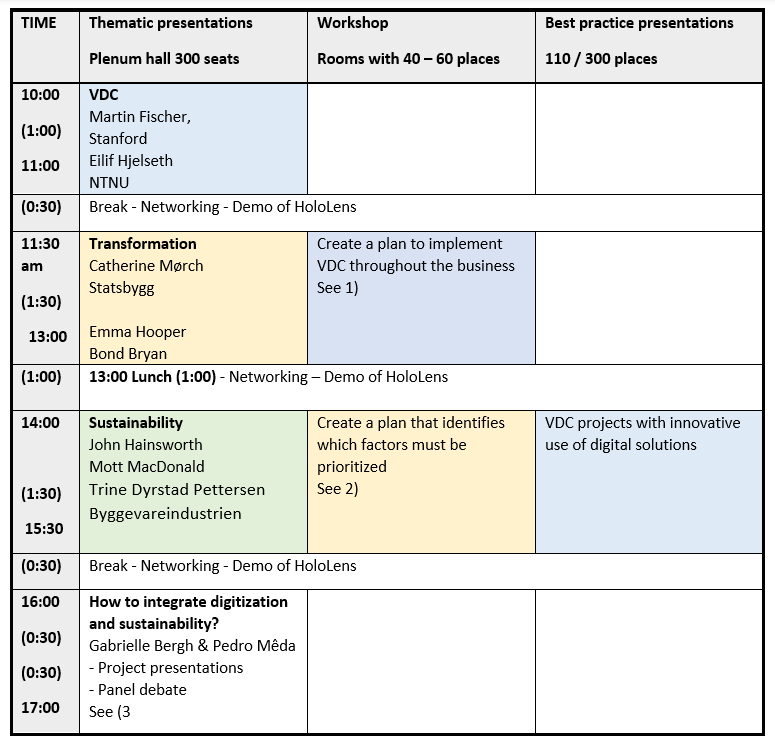
1) Virtual Design and Construction with a twist!
Workshop facilitators: Professor Martin Fischer (Stanford) and Professor Eilif Hjelseth (NTNU)
Participants: Professionals at all levels in an organization working with implementation and improvements of project implementation methodology like VDC, LEAN, Collaborative projects and likewise.
Teamwork in Norwegian and English-speaking groups, lecturing in English.
During the multidisciplinary and multilevel workshop – each participant will develop a transformation plan for practical use in their own organization.
The VDC perspective focuses traditionally on the workflow in the project. This workshop focuses on connecting the workflow of VDC in projects to the information flow in your company. Efficient project implementation of methodologies must be supported by digital solutions for use and re-use of information. To enable this, digital competency is required at different levels in the organization.
Transformation matrix* – Gap analysis framework - from ? to !
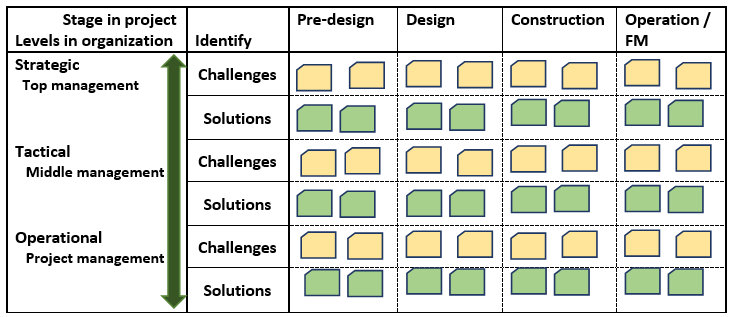
*This is only an overview – Will be supported by forms to detail the implementation plan for your company
2) Transformation Workshop
The purpose of the workshop is to identify actions for digital transformation using the following framework:

We will group you into Norwegian speaking and English speaking teams and if possible, Large vs Small projects and/or Construction vs Infrastructure.
The proposals from each team will be presented – and we will identify similarities and differences – Joint actions will be addressed!
3) Sustainability and Digitalisation Workshop
More information coming soon!
Best Practice Presentations
Teknostallen
Technobyen is located in the middle of the Technology Arch, centrally located between NTNU and SINTEF at Gløshaugen and St. Olavs Hospital. Proximity to the city center and public means of transport, train and airport bus. 75,000 square meters spread over 5 modern commercial buildings where approx. 2,500 employees are looked after at their workplace.

To be presented by: Erik Langørgen, project coordination manager in NCC Norway
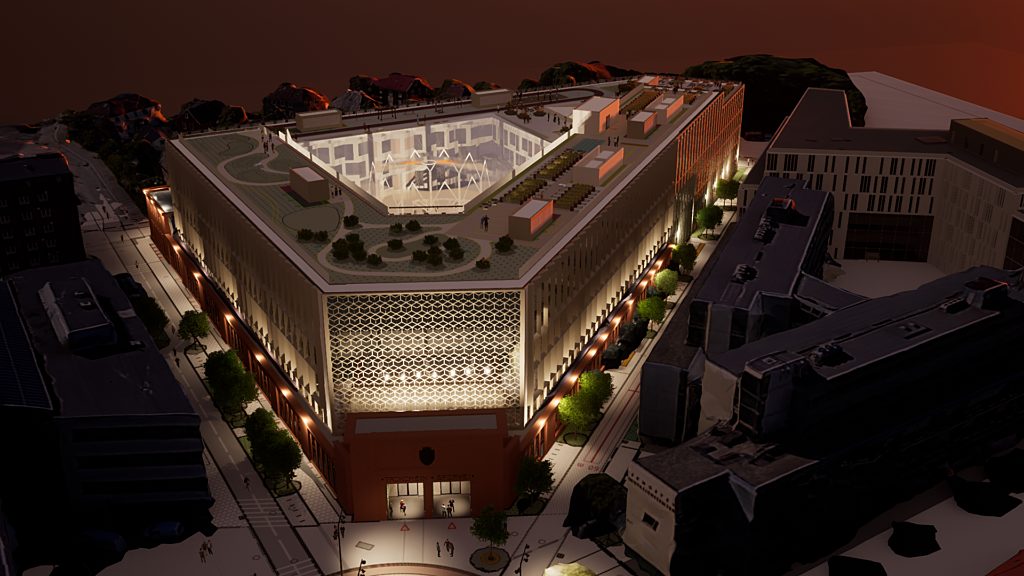
Sara Kulturhus

Sara kulturhus is a 20-storey building constructed from wood from the forests surrounding Skellefteå. It follows in Skellefteå's long tradition of constructing buildings in wood. Also, the use of solar cells and an efficient energy strategy help to minimise the building's carbon footprint.
To be presented by: Vegard Brå, Project Manager Project Development
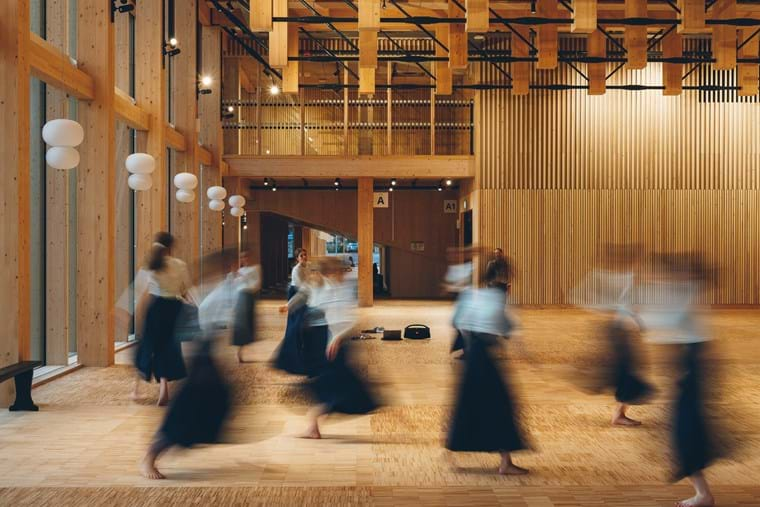
Speakers
.
.jpg)
Topic:
A profitable and competitive Norwegian building materials industry that is a leader in sustainable solutions
Abstract:
Strategic goals: We have a serious building materials market with effective and fair competitive conditions. We promote the use of lifecycle-based environmental documentation as a basis for development and demand for climate- and energy-efficient and circular building products. We secure the manufacturers' interests in the digitization of the construction industry. We work for a positive reputation for the Norwegian building materials industry. Description: Digitalisation can play a significant role in the green shift. The new standard: ISO 22057:2022 Sustainability in buildings and civil engineering works — Data templates for the use of environmental product declarations (EPDs) for construction products in building information modelling (BIM). Environmental declarations must document and communicate environmental properties of building materials and are important in the work with life cycle assessments and greenhouse gas calculations for buildings and facilities. Now there is a new standard where you can include data from EPDs in product data templates (PDTs). Norway is at the forefront when it comes to the development and use of EPDs, significantly further than many other European countries. In addition, we are at the forefront when it comes to digitizing information about construction and building materials, and the development and use of BIM. With this as a backdrop, it was natural that the proposal for an international standard came from Norway. Important players in the construction industry saw early on the need to include environmental information on an equal footing with other characteristics in a BIM context.
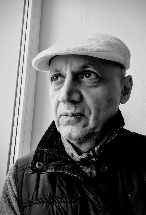
Topic:
Why we need "HIM" in BIM
Abstract:
Information and communication technology (ICT) in general and building information modeling (BIM) in particular, have a significant potential to support the design, construction, operation, retrofit, and decommissioning of buildings. However, ICT applications in the building sector and particularly BIM have frequently focused on buildings as mere hardware entities. Accordingly, the primary concern of BIM and the associated ontologies have often viewed buildings as purely technical artifacts. What seems to be ""missing in action"" in common BIM discourse, is PEOPLE, that is the primary reason why we make buildings in the first place. To put it in somewhat more colorful terms, it is not just about ""BIM"" (Building Information Modeling), but also ""HIM"" (Human Information Modeling). This implies the essential importance of incorporating, in BIM and in other building-related ICT applications (e.g., building performance simulation), robust representation of buildings' occupants, including their requirements, their needs, their environmental perception and evaluation processes, and their actions and behavior. In this context, the present keynote entails two key premises: i) Building Information Modeling (BIM) must account for building occupants through Human Information Modeling (HIM), and ii) Robust developments in HIM require further in-depth and theory-driven ontological advances. The first premise seems evident, as key building performance indicators including energy efficiency, environmental impact, and indoor-environmental conditions are influenced by inhabitants' requirements and the patterns of their presence and behavior in buildings. The second premise argues that existing applications of behavioral theories in BIM still lack sound theoretical underpinnings, robust ontological frameworks, and sufficient empirical basis. The keynote underlines the need and proposed promising directions for further research and development in this area.
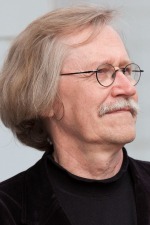
Topic:
AECOO Education – Do we need a new teaching paradigm?
Abstract:
Building Information modelling (BIM) is a common, but also often misunderstood topic today, especially in education where it is often considered as a mere technological issue – in the worst case just a s a software product. However, it is a fundamental change in both individual way of designing buildings and even more so as a way of communicate and share information in the AECOO (Architectural, Engineering, Construction and Owning/Operating) team and more widely over the life-cycle of the products in our built environment. These changes should be reflected in the AECOO education, but in many cases the academia is changing even slower than the industry. The presentation is focusing on the impact of BIM and educational challenges to address them.
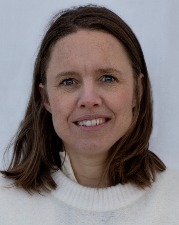
Topic:
Digitalisation in Norway
Abstract:
Cathrine has a history of working in a broad specter of the construction industry. From the early days of BIM implementing this technology into processes and companies throughout the AEC value chain and in mega projects throughout Scandinavia. She has wun awards for her passion of making the industry more efficient through the use of technology and are passionate about transforming the industry towards becoming more sustainable and productive. She is a true believer in technology, but are challenging the industry by asking if the questions and discussions that are ongoing in the industry today is the ones that will drive the necessary change towards the future. Who will take lead on the disruption that will happen to the AEC industry, will it come from “within” or will there be an external intruder? What will start the journey and where will it end?

Topic:
Information the one true asset to rule them all: Information management using the ISO 19650 information management framework and Industry Foundation Classes (IFC).
Abstract:
BIM has largely been focused around geometrical modelling and technology; however this is only a small piece of the puzzle which has distracted us from looking at the bigger picture. A picture where information needs to be managed throughout a built assets life to reduce waste and risk. Through ISO 19650 we have recognised that digitisation starts with information, and this too is an asset its own right which needs to be specified, procured delivered and checked to satisfy its intended purpose and provide value. In this session I want to take this further by introducing a layer beneath the ISO 19650 activities, which has a standardised data model, Industry Foundation Classes (IFC, ISO 16739) at its core. IFC allows information to be defined independent of software, providing a digital language that supports the ISO 19650 activities whilst providing quality, longevity and neutrality.
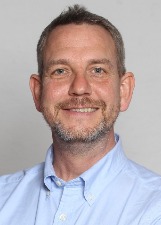
Topic:
Digitalisation and Sustainability
Abstract:
For hundreds of years, academic and engineering professionals in the built environment have applied cutting edge approaches to the challenges of the day. The resulting canals, railways and roads which have underpinned society are facing redundancy, as relics of the effects of modern disruptive innovation theories. On equally relentless missions, for decades product designers have strived to fulfil the unmet needs of the consumer. As we acknowledge the take, make and waste processes of this era, designers are now tooled with better insights and methodologies to disrupt whole sectors, and to delight their customers who wish to get their jobs done. This session will explore how aspects at the intersection of their differing design approaches are significant in the emergence of a built world circular economy.
.jpeg)
Topic:
Role of Open Standards and BIM (Model based information) in the Construction Industry workflow
Abstract:
In construction the role of drawings and other human readable documents is very clear. That is not the case with model based (BIM) data. Originally when modelling was introduced, the vision was that there would exist a ""single source of truth"", a common database updated by all the parties in a project and that would ""evolve"" during the project from ""brief"" trough design and construction to as built. This has proved to be an utopia impossible to achieve because of two main reasons, the fragmented structure of the industry and missunderstanding and too high expectations on what is the purpose of and limitations in modelling in general. In this paper I will present a more realistic and industry adapted approach on how to apply modelling, model based data and open standards to construction workflow. My vision is the in the future the majority of data is consumed in open data schemes.
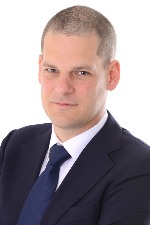
Topic:
Don’t forget about the import
Abstract:
Interoperability doesn’t work when it needs human intervention. Digitalization is on the rise. With that, the interest in standardization has also increased. Many new initiatives have started and for a while any kind of digital format was welcome. For a long term sustainable data strategy not any kind of standard is useful. Digitalization is not only about doing things with data, it is about optimizing the workflows. Actual interoperability brings real progress and automation of processes. Within buildingSMART the focus of the Technical roadmap less about technology, but very focused on interoperability for automation. This presentation will show how current and future solutions in the buildingSMART ecosystem contribute to short term wins ánd long term benefits for the industry.
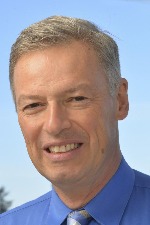
Topic:
Scaling exceptional performance with Virtual Design and Construction
Abstract:
Due to high demand for infrastructure, buildings, and production facilities, global construction output is forecast to double over the foreseeable future. At the same time, the environmental sustainability of these structures must be improved by at least 50%¬. The economic and social performance of the built environment must also be improved significantly. In many markets, these increased demands must be met with a stagnant or decreasing pool of blue- and white-collar resources. In other words, we must scale exceptional performance to all projects with project teams that are smaller and less experienced. The existing methods of designing and building facilities will simply not allow us to meet these demands over the next decade and beyond. We must deploy engineering and management methods that use material, labor, and equipment much more efficiently and effectively! Conceptually and through examples, this talk will show how VDC (Virtual Design and Construction) allows project teams to determine the desired performance objectives for a project and establish an efficient production process. To do so, project team members leverage each other’s knowledge to produce an integrated information basis and concurrent workflows for rapid decision making and short feedback loops. The talk will also show how, with VDC, companies are able to scale the exceptional performance achieved by some project teams to all teams and to incorporate emerging technologies for automation, collaboration, and information sharing for continuous improvement.
Scientific Workshops and Special Sessions
ECPPM 2022 will include interactive workshops as part of the scientific programme in addition to the Industry Day, the purpose of the workshops are ideation and networking with researchers/practitioners with similar interests. We have allocated 5 timeslots (1.5 Hours each) in the programme to cover various workshops in addition to the workshops in the industry day schedule. The following 4 workshop themes are in development:
Early BIM workshop/scientific session - Facilitated by Ruhr-University Bochum

Research Design and Paper writing workshop (2 parts - Wednesday & Friday)
Mirosław Skibniewski will conduct a workshop/seminar on how to become a successful writer of research papers for high-impact scholarly journals. Mirosław J. Skibniewski is a James Clark Chair Professor at Department of Civil & Environmental Engineering at University of Maryland, USA Editor-in-Chief Construction Technologies and Engineering and Automation in Construction. More information at: https://user.eng.umd.edu/~mirek/.
Scientific Projects Presentations About completed / ongoing scientific research projects and networking for further development. Following projects are currently scheduled for presentations: -DigiPLACE project -Growing Circle -Bridging the Gap -And Others including new calls (Email post@ecppm2022.org to present your research project)
Future Research Think Tank Purpose: Discuss direction for further research Initiate development of a ECPPM Research Road Map
Do you have other themes for workshops? Please contact organisers (post@ecppm2022.org).
Committee
Members of the scientific commitee that are involved in the review process are listed here.
To be listed as a reviewer and as part of the committee, you would need to submit at least one review of a full paper.
Submission
Please Note that ECPPM final paper deadline has passed, if you have a late submission, please contact post@ecppm2022.org.
Optional Extended Abstract:
To assist in developing abstracts and scientifically robust reviews, the organisers recommend using the Abstract IMRAD Working Template to develop your abstract. On the submission portal, you will have the option to add the IMRAD responses from the abstract IMRAD working template to provide more information to reviewers.
For more information on IMRAD, kindly refer to the Guidelines for abstract and paper development .
Abstract submission is closed. Kindly email post@ecppm2022.org to enquire if there are spaces available for your topic.
Full Paper Submission Guidelines:
The Submission Portal is OPEN.
Please find the Template for Full Papers. The page limit is 6 to 8 pages (including references).
When developing your paper please follow the ECPPM 2022 Full Paper Instructions. The page limit is 6 to 8 pages (including references).
To produce the final cameraready version please use the Adobe PDF preset file (CPIARPDF1.7.joboptions).
Endnote output formatting style.
Guidance on figures/images etc.
When you submit your paper, please submit the Consent Form.
All papers will be published by CRC press on Routledge Taylor & Francis group. For example please see ECPPM 2021 conference proceedings.
Speakers: For information on the presentation please read and use the Presentation Template & Guidelines.
Conference topics
Digitalisation is a broad topic with multiple sub-domains. ECPPM acknowledges that the long list of themes associated are still relevant with significant activity in research.
The overarching statement of ECPPM 2022 is:
‘the integration of technology, process and people –a multi-perspective view to innovation.’
The following topics and applications are given special attention:
Sustainable and Circular Driven Digitalisation: Data driven design and/or decision support Assessment and documentation of sustainability Information lifecycle - collect, process and present Environmental product documentation
Digital Enabled Collaboration: Integrated and multi-disciplinary processes, e.g. Lean Construction or Virtual Design and Construction (VDC)
Automation of Processes: Automation of design and engineering processes (e.g. BIM based model and compliance checking) Parametric Modelling Robotic Process Automation Product data templates
Enabling Technologies: Machine Learning, Big Data, Artifical and Augmented Intelligence \ Digital Twins and/or Semantic Technology Sensors and IoT Production with Robots and Autonomous Machinery New combinations and applications of existing technical solutions
Framework for Implementation: ISO 19650, and other international (ISO), European (CEN) and national standard Digital Platforms and Ecosystems
Human Factors in Digital Application: Digital Innovation and Economy of Digitalisation Client, Organisational, Team and/or Individual perspectives
The following are keywords and themes which are also considered:
(If you would like to see other keywords or themes that are relevant to product and process modelling in the built environment, please get in touch with the conference chair via email - eilif.hjelseth@ntnu.no)
Asset Management Innovation\ Artificial and Augmented Intelligence in AEC.\ Automation\ Autonomous Data Capture\ Big Data\ BIM Education and Training.\ BIM Servers and Product Lifecycle Management Systems.\ BIM Standardization, Implementation and Adoption.\ Building Performance Simulation.\ Communication and Collaboration Technologies.\ Construction 4.0 and beyond\ Construction Management\ Contract, Cost and Risk Management.\ Data driven decision making\ Digital Carbon Net Zero\ Digital Education\ Digital implementation \ Digital Twins and Cyber-Physical Systems.\ Human Data Interaction\ Industrialized Production, Smart Products and Services.\ Information and Knowledge Management\ Information and Knowledge Management Systems\ Information Ethics\ Information Security\ Information Systems\ Infrastructure Product and Process Applications\ Logic based systems e.g. Descriptive, Propositional, Fuzzy, Reasoning\ Product Development \ Regulatory and Legal Aspects\ Safety and Quality.\ Semantic Web, Linked Data, Big Data\ Sensors and Internet of Things.\ Smart Buildings and Cities.\ Smart Technology\ Software Interoperability.\ Sustainability driven digital \ Sustainable Buildings and Urban Environments.\ 5D/nD Modelling and Planning.
Key dates
Abstract Submission (First Call): 15th November 2021 Abstract Acceptance Notification: 15th December 2021 Abstract Submission (Second Call): 15th December 2021 Second Call Abstract Acceptance Notification: 17th January 2022 Abstract Submission (Third Call): 17th January 2022 Abstract Submission (Final Call): 31st January 2022 Third & Final Call Abstract Acceptance Notification: 28th February 2022 1st Allocation Full Paper Submission^: 8th April 2022 1st Allocation Full Paper Review Notification: 8th May 2022 2nd Allocation Full Paper Submission^: 8th May 2022 2nd Allocation Full Paper Review Notification: 8th June 2022 3rd Allocation FINAL Full Paper Submission^: 10th June 2022 (extended due to requests from authors) 3rd Allocation Full Paper Review Notification: 3rd July 2022 Camera-Ready Paper Submission: no later than 7th August 2022 Conference: 14th – 16th September 2022
Venue
The conference will be held at the Scandic Lerkendal Hotel in Trondheim, Norway. The venue is also the recommended accommodation during the duration of the conference, which can be booked as part of the registration process for the conference.
Accommodation: Scandic Lerkendal is also the recommended hotel for accommodation during the conference, it has also been selected as the preference because of networking events each evening. The fixed price for accommodation of 1200NOK (approx. 120 Euros) has been set for any conference attendees, this includes breakfast.
Getting there:
There is a direct bus from Trondheim Værnes airport which stops in front of the hotel. The stop names are FB 73 Scandic Lerkendal (Hotel) and Trondheim Lufthavn Værnes (Airport).
For more information about the bus please visit: Vaernes-Ekspressen.
European Association of Product and Process Modelling
The EAPPM is an organisation for institutions from academia, research and industry that promote the application of Computer Science and Information Technology Methods in the Building Industry.
Its primary objective is to support the organisation of the biennially held European Conference on Product and Process Modelling in the Building Industry (ECPPM).
For more information please visit EAPPM website.
Sponsors
Contact
NTNU Conference Contact for Registration, Submission System Support, Fees, Visa, Facilities Contact information: Email: ecppm2022@videre.ntnu.no
Organisers Contact for Scientific Queries or Any other queries Contact information: Email: post@ecppm2022.org
Conference Local Chair Contact information: Email: eilif.hjelseth@ntnu.no
.jpeg)